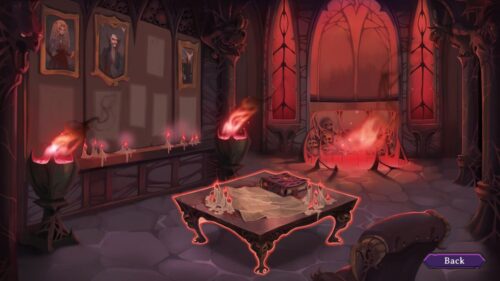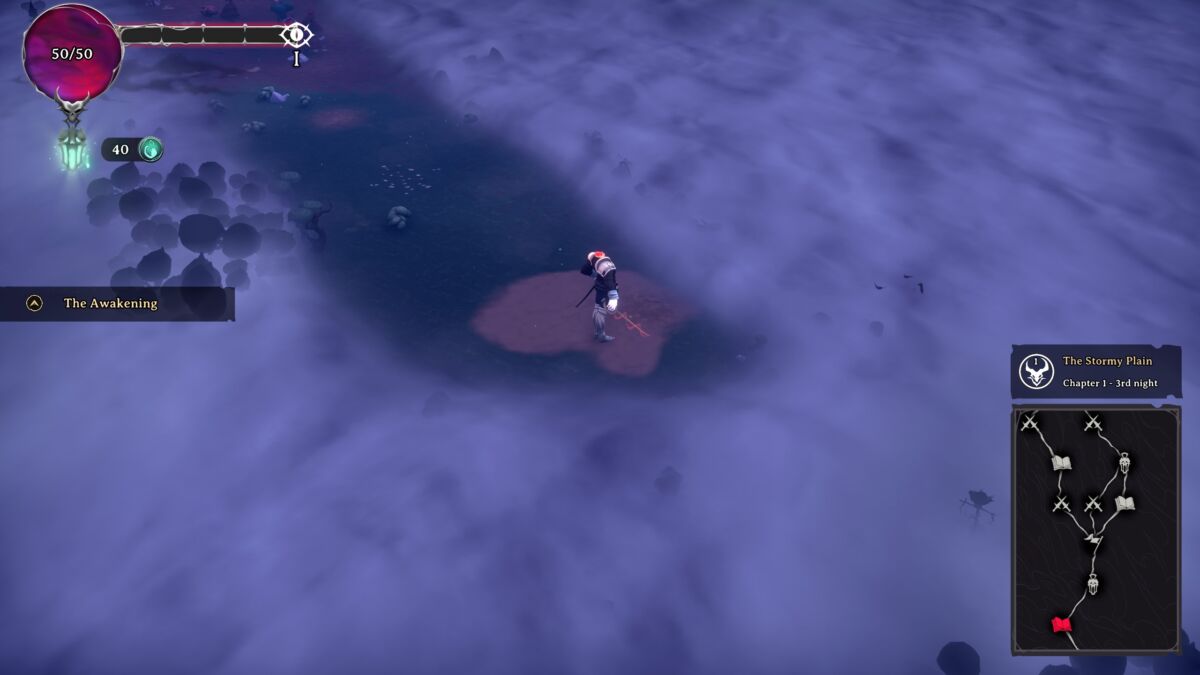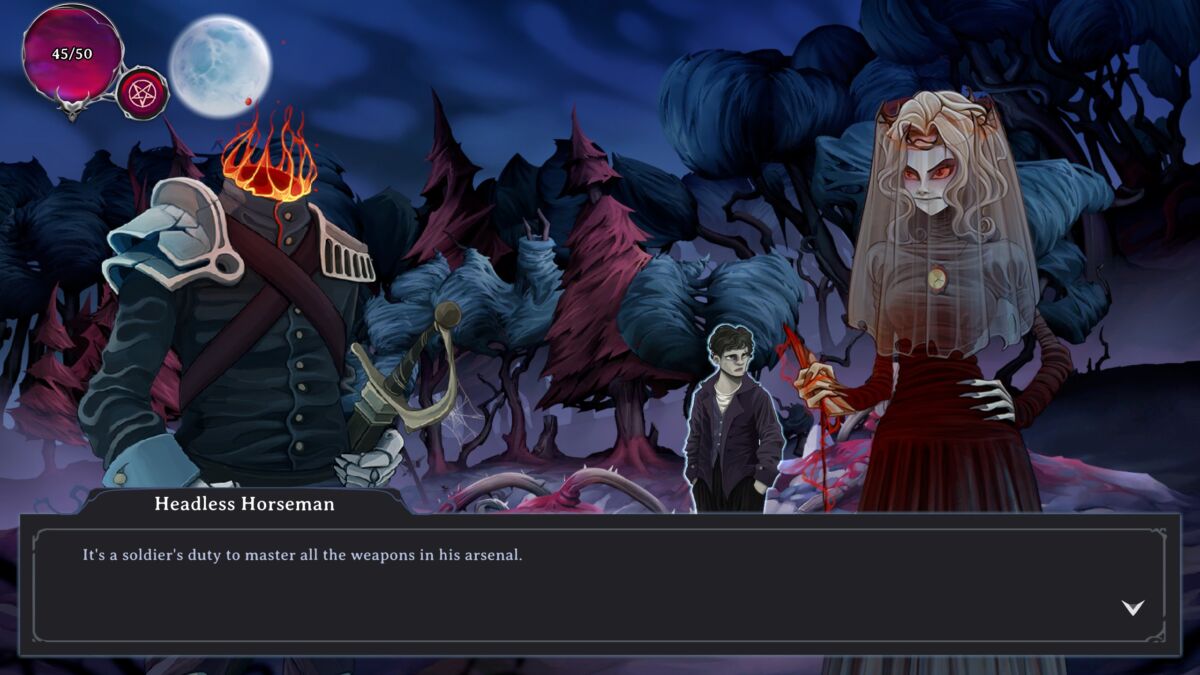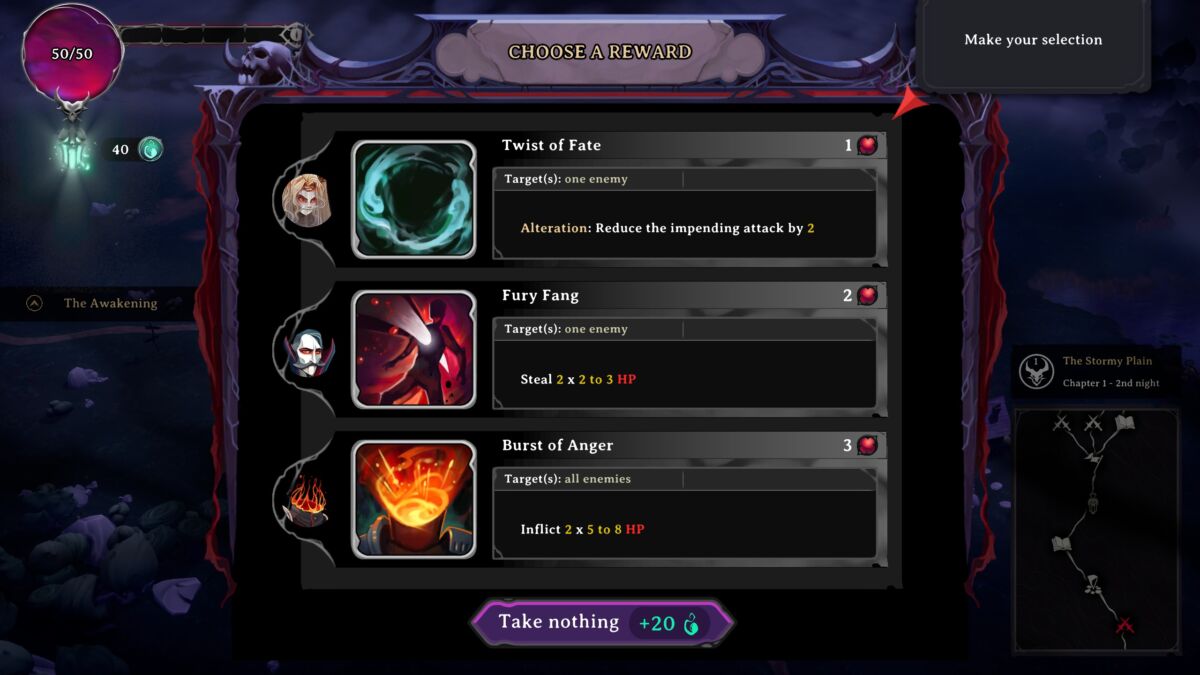
Roguelikes have been taking over the world of gaming for quite some time now. The randomness of each run draws players in to find new loot or abilities, hoping they make it to the endgame. However, what if you could load the dice to ensure a favorable outcome? Some would call that unfair, but Rogue Lords makes that its main draw. While traditional in its base, Rogue Lords changes a couple things up to differentiate itself from a slew of other roguelikes, for better or for worse.
With its gothic and horror theme, you play as the Devil himself, who, after being banished back to Hell after blundering at the hands of famed vampire hunter Van Helsing, swears revenge on the human world by coming back with a little help from some famous fictional characters like Dracula and Bloody Mary.

Playing like a traditional dungeon crawler and turn-based RPG, Rogue Lords consists of three different: Exploration, combat, and preparation. While in the exploration phase, Rogue Lords is similar to a glorified board game — you walk on the map to activity nodes that initiate combat phases and social checks. If you’re not starting combat, you’re visiting a social check of some kind. Prior to entering a social event, you can see a stat that is checked and pick a character that can check against that stat. Choices vary and can affect things from party members gaining new abilities, destroying something that impacts upcoming encounters, and more. Devil Mode, when you can manipulate the map, is useful mainly for passing critical checks when you think a reward might be useful, but beyond that it’s generally just hoping the randomness blesses you.
Combat is where Rogue Lords gets interesting. Like a classic RPG, it’s your party of 3 versus waves of enemies. Actions during your turns are dictated by a pool of points you spend, with party members casting a wide range of abilities that inflict status effects that can turn the tide of battle in your favor. Party members can protect themselves with spells, or you can start playing tricks with the game in the signature Devil Mode. Flipping over to this mode allows you, the Devil, to manipulate the battle to how you see fit. Wish you had that defensive buff the boss has that’s preventing damage? Steal it from the boss and put it on your party member. Want to just deplete that annoying Priest’s HP to zero with a flick of the wrist? Done.

Cheating through a fight is not only a last resort, it’s practically encouraged throughout the game. During my time with Rogue Lords, turning on Devil Mode with impunity became essential to conquering late-run enemies. At times enemy parties would use abilities that could only be overcome by either stealing a buff or by outright killing them using a manipulation of the health bar.
Devil Mode being the backbone is both the crutch and undoing of Rogue Lords. The main gameplay doesn’t bring much to the table other dungeon crawlers like Darkest Dungeon didn’t already successfully years ago. The template is only changed by the Devil Mode, effectively adding a fourth party member to your party of three, and that fourth party member has the most powerful abilities.

Refusing to step outside a comfort zone built up so strongly keeps Devil Mode stuck within the very basic way it changes the game, preventing Rogue Lords from greatness in the process. Instead, Devil Mode only offers a surface-level twist that gives the player a tiny change in agency over a decision that could’ve felt equally as fair if a party member was passing a simple stat check. Thematically, it only feels like a simple nudge in the right direction from an unseen force, rather than the potentially ridiculous things Devil Mode could do if they allowed it to step outside its own comfort zone. Rules were meant to be broken, but Devil Mode doesn’t break any rules — it only bends the arc of the universe’s will towards you, and it doesn’t feel like you’re the trickster you could be.
Rather than being all-powerful, you’re the kid in the Dungeons and Dragons party tipping your D6 from a 1 to a 5 just so that attack does more damage. In reality, you should be the Dungeon Master changing the rules on the fly for the party and driving the major narrative more than just passing a stat check at a pre-dictated spot in the story. A master of fate should be able to step outside the boundaries of normalcy and warp every aspect of play to whatever they desire. Devil Mode being stuck within a very governed set of rules and refusing to break out of that comfort zone makes Rogue Lords suffer because of that.

That’s not to say, as a whole, it’s a bad time. The traditional dungeon crawler rules keep it rather firmly planted in its roots, and the art style carries the gothic style well. I just wish that with a theme of being able to cheat reality itself, Rogue Lords broke more molds than it clutches very firmly on to. Roguelikes thrive on innovation rather than a grip on the past, but Rogue Lords does just about enough to make it seem different than every other turn-based dungeon crawler that preceded it.
A code for Rogue Lords on Steam was provided by PR for purposes of this review.
Some of the coverage you find on Cultured Vultures contains affiliate links, which provide us with small commissions based on purchases made from visiting our site.


